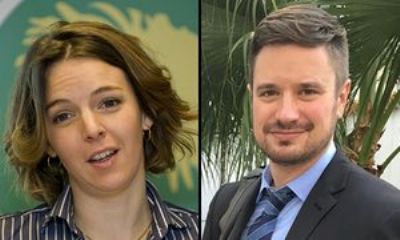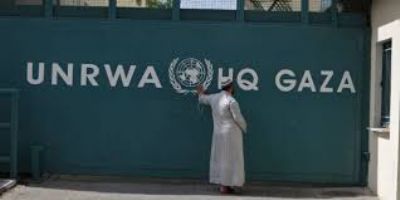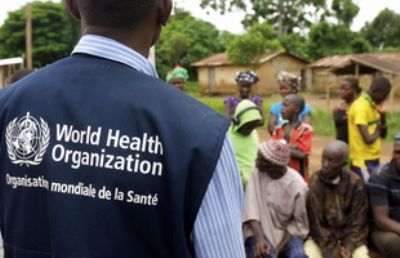Share
What's New
Resources updated Monday, May 22, 2017
May 22, 2017

The UN committee tasked with providing non-governmental organizations (NGOs) a voice in UN meetings silenced civil society voices in the Committee itself. The Committee voted against allowing Amnesty International to deliver a statement on behalf of itself and other NGOs, as Russia accused the proponents of the statement of "trickery."
The UN Committee on Non-Governmental Organizations is mandated with determining whether to recommend UN accreditation for NGOs. NGOs seek UN accreditation because it permits them to attend meetings, to circulate documents, and on occasion to hold events inside the UN and address UN sessions. The NGO Committee is composed of 19 UN Member States, including repressive anti-NGO regimes like China, Iran, Sudan, Venezuela, Russia, and Cuba. Such countries outnumber Western members of the Committee.
May 22, 2017 was the first day of the second of two annual sessions and general statements about the Committee's work on opening day are standard. However, within minutes of the start of the session, China objected to the word "statements" contained in the Committee's draft "programme of work." China's concern was that without a qualification of "by Member States and Observer States," the reference to "statements" could allow NGOs to speak. The Committee then spent nearly an hour-and-a-half debating the word, with Russia, India, Venezuela, Cuba, and Iran supporting China's objection, while the U.S., Israel, and Greece argued against such a qualification. The Committee then finally agreed to delete the word "statements," which, according to the Chair of the Committee, made no substantive difference.
Shortly thereafter, the representative of Uruguay attempted to cede her right to make a statement to a representative of Amnesty International. Amnesty sought to make a statement on behalf of a number of civil society organizations. Although last May the Committee had heard a general statement from an NGO, China immediately objected. This set off a second round of fighting in the Committee that lasted several hours. The representatives of China, Cuba, Nicaragua, and India voiced their opposition to allowing an NGO to make a statement, along with Russia who accused Uruguay and the United States of "trickery" in seeking to facilitate a voice for civil society. Russia went so far as to claim Amnesty International had been forced to speak by government goons.
In the words of the Russian representative:
"We begin within our little family, our little UN body, we begin with some kind of trickery... Russian experts in recent years have noted...member states pay NGOs, using grants and grant support systems...paying out money to NGOs so that those NGOs could then do what these states want.... I don't know where else... a member state can cede the floor to an civil society organization... but it is categorically unacceptable as we said earlier to employ any sort of gimmicks or trickery... What is this phenomenon when a member state gives the floor to an NGO?...This is part of a broader planned agenda... I suspect that this is all planned and I suspect that it's not the NGO itself that wishes to take the floor, but that someone else has brought it here and asked it to take the floor or even forced it to take the floor and I have already explained how this works before, including through grants. So I have suspicions on this matter... We're against any sort of manipulation, any sorts of gimmicks"
The Committee eventually took a vote against allowing Uruguay to give its speaking time to Amnesty International. The vote was only 4 states in favor of allowing Amnesty to speak (Uruguay, United States, Israel, Greece), 14 against (Pakistan, Russia, South Africa, Sudan, Turkey, Venezuela, Azerbaijan, Burundi, China, Cuba, India, Iran, Mauritania, Nicaragua), and 1 absent (Guinea).
Later in the day, the United States made a final attempt to enable Amnesty International to speak, formulating a different question to be voted on. However, instead of proceeding to a vote, Russia moved to close debate on the entire subject, shutting down any further discussion with a procedural motion to take "no action." Russia's no action motion was adopted with 13 in favor (India, Iran, Mauritania, Nicaragua, Pakistan, Russia, South Africa, Sudan, Venezuela, Azerbaijan, Burundi, China, Cuba), 4 against (Israel, Greece, United States, Uruguay), 1 abstention (Turkey), and 1 absent (Guinea).
Thus, Amnesty International never got to speak.
Also decided on opening day: Sudan was elected a Vice-Chair of the NGO Committee. Sudan's President has been indicted for genocide and crimes against humanity by the International Criminal Court, and there is no freedom of association of non-governmental organizations in the country. Turkey and Azerbaijan - also not open societies - were elected to serve as the other two Committee Vice-Chairs during the last session in January 2017.
UN NGO Committee Doesn't Want to Hear from NGOs Development

For 2 Experts Killed in Congo, U.N. Provided Little Training and No Protection Article

Indonesian police have arrested 141 men attending what they called a "gay sex party" at a sauna in the capital Jakarta late on Sunday.
Police said attendees, including a Briton and a Singaporean, paid 185,000 rupiahs ($14; £10) to attend.
Indonesia has witnessed increasing hostility towards its small and low-profile LGBTQ community. Homosexuality is not illegal under Indonesian law, except in conservative Aceh province.
But Jakarta police spokesman Raden Argo Yuwono said some of those detained could be charged under Indonesia's harsh anti-pornography laws.
"There were gay people who were caught strip-teasing and masturbating in the scene," he told BBC Indonesian.
Under the ambiguously-worded laws, putting on a live strip show for the enjoyment of the public could be construed as "pornography".
Last week, two men were sentenced to public caning in Aceh after being convicted for engaging in gay sex - in the first such ruling since tough anti-homosexuality laws were introduced there in 2014.
Earlier this month, Indonesian police arrested 14 people in the city of Surabaya for allegedly holding a gay party. They could also face charges under anti-pornography laws.


